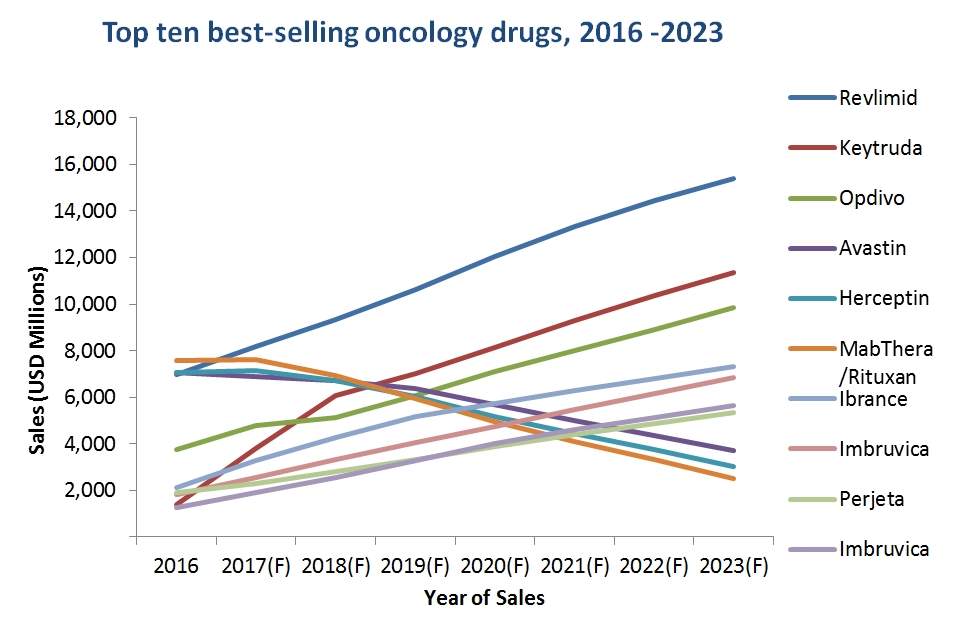
Source: GlobalData Pharma Intelligence Centre, Drugs Database [accessed 16 November 2017]
It is no surprise that the three best-selling oncology drugs are immuno-modulating agents. The checkpoint inhibitor race has begun, with a brand new class of cancer drugs achieving unprecedented results in efficacy. Successful companies are employing strategies similar to other mega-blockbuster drugs such as Avastin and Herceptin.
Celgene’s Revlimid, already a cancer blockbuster drug, is currently demonstrating its effectiveness in 18 cancer trials and is already marketed for eight indications. Merck’s Keytruda and Bristol-Myers Squibb’s Opdivo are trailing in the second and third positions, respectively; these PD1 inhibitors have created new opportunities for developers to explore a range of potential label expansions with unprecedented data.
Immuno-oncology drugs have paved the way for pharma and biotech companies to be creative in their trials and explore the use of immune-modulators in combination with chemotherapy/targeted therapy agents or as backbone therapies for immuno-oncology candidates. The benefits of market access for checkpoint inhibitors are plentiful; and developers have the upper-hand in a bottom-up approach to markets and gaining first-to-market and first-in-class approvals.






